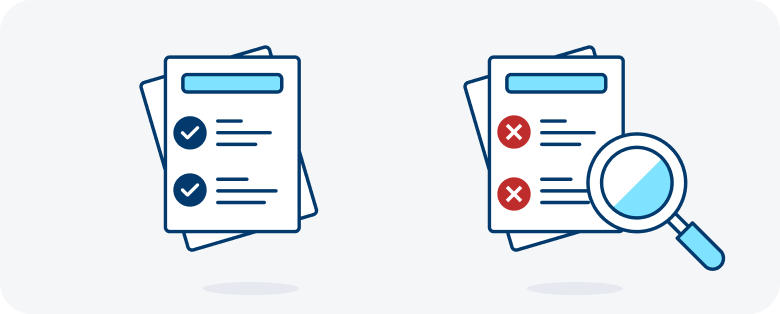Unauthorized occupants who exercise squatters rights in New York can quickly become a landlord’s worst nightmare.
Once settled in, these unwelcome trespassers can be incredibly challenging to remove and might even attempt to claim property rights through a legal process called adverse possession.
To avoid dreaded scenarios like these, New York landlords should study up on landlord-tenant law, understand squatters rights, and learn how to protect their unoccupied properties from adverse possession claims.
In this article, we’ll cover all the most important aspects of New York squatter laws, starting with the basics.
Trespassers vs. Squatters
Before we assess the legality of squatting in New York, we’ll analyze the main differences between trespassers and squatters.
- Trespassers enter someone’s property without permission with the intent of staying for a short time.
- Squatters enter someone’s unoccupied or abandoned property without permission with the intent of living there for an extended time.
Law enforcement can usually remove trespassers from a property quickly, whereas squatters who have established a presence might require a formal eviction lawsuit to be expelled.
Note: Landlords should call law enforcement at the first sign of a trespasser before they have a chance to establish themselves as a long-term squatter.
New York Laws on Squatters
Squatting, a form of trespassing, is illegal in New York.
Trespassing is a criminal offense punishable by law, though trespassing squatters who have established their presence at a property don’t usually face criminal charges. Instead, they’re more likely to be taken to civil court by landlords and face eviction proceedings to force their removal.
Until recently, squatters in New York gained certain tenant rights after spending 30 days living on someone else’s property, making it frustrating and time-consuming for landlords to remove them.
Laws recently tilted back in the landlords’ favor; however, New York legislators added seven words to the housing law: “A tenant shall not include a squatter” on April 22nd, 2024. Since then, squatters can no longer obtain tenant rights and are much easier to evict.
Squatters Rights vs. Adverse Possession Laws in New York

As we just mentioned, squatters in New York can’t gain tenant rights once they’ve lived on a property for 30 days or more and will remain trespassers in the eye of the law. Still, landlords will need to initiate eviction proceedings to remove them after they’ve settled in.
Further, adverse possession laws allow long-haul squatters who have lived on a property for 10 or more years to attempt to claim ownership rights after they’ve fulfilled a series of complex and rigid requirements.
How Squatters Can Legally Claim New York Property Through Adverse Possession
While the idea of losing property to squatters may strike fear into some landlords, the reality is successful adverse possession claims are extremely rare and relatively easy to prevent.
According to the New York State Senate, squatters must legitimately believe that a property belongs to them, establish a longstanding presence, and jump through a complex series of legal hoops to claim ownership rights.
Here is the strict set of requirements squatters must meet to claim adverse possession in New York:
- Under Claim of Right: Squatters must provide reasonable evidence to support their belief that they legally own the property in question.
- Acquisition of Title: Squatters must gain possession of the property’s title or a color of title (a title or deed that appears legitimate).
- Continuous Occupancy: Squatters must live on the property continuously for at least 10 years. Extended absences from the property could nullify the squatter’s claim.
- Hostile Occupancy: Squatters must stay on the property without permission from the owner; they must be unwelcome and uninvited trespassers.
- Open and Notorious Occupancy: Squatters must make their presence open and obvious. Secretive squatting or hiding inside properties does not count.
- Exclusive Occupancy: Squatters must be the sole occupants of a property and act as rightful owners. Sharing a property with other squatters will jeopardize a claim.
- Payment of Taxes: Squatters must pay property taxes the entire time that they live on a property.
In New York, squatters also bear the burden of proof for adverse possession, meaning the property will remain in the possession of its rightful owner until the squatter can prove to a judge that they’ve met all of the above requirements.
Landlord Rights & Responsibilities
New York landlords have every right to attempt to reclaim their properties from squatters as long as they do so lawfully. Reclamation techniques include issuing squatters a 10-day Notice to Quit, pursuing an eviction, and working with an attorney to increase their odds of removing unwanted trespassers.
Landlords also have the right to negotiate with squatters in an attempt to reach a “cash for keys” settlement that pays squatters to leave the property and agree never to return.
In the spirit of fair play, landlords are responsible for ensuring their residences remain inhabitable even when occupied by squatters. In other words, landlords must continue to provide essential services like heat, hot water, and electricity.
Squatter Rights and Responsibilities
As of April 22nd, 2024, squatters don’t gain any special tenant rights, even after inhabiting an unoccupied property for 30 days or more.
With that in mind, once squatters have begun living on a property that doesn’t belong to them, they have the right to remain there peacefully until the owner evicts them. Any attempts at forceful removal by the landlord would be illegal.
As such, a squatter is responsible for vacating an owner’s property when issued a Notice to Quit and must abide by any court-mandated eviction process. If squatters fail to vacate a property when issued a formal eviction notice, they become subject to removal from law enforcement.
How to Legally Evict Squatters in New York
In an ideal scenario, a squatter will vacate a property upon a landlord’s request, and eviction interventions can be avoided. If a squatter refuses to leave, however, the landlord will need to evict them to regain control of their property.
Here are the typical eviction steps in New York:
- Gather evidence against the squatter: Document any evidence of squatting you can use to bolster your case against the squatter in court.
- Serve a Notice to Quit: Issue your squatter a document demanding they leave your property within ten days. You can avoid eviction if they abide by your request.
- File an eviction lawsuit: If the squatter doesn’t vacate after 10 days, you’ll need to file an eviction lawsuit with the New York Courts to initiate the legal process.
- Serve the squatter: After your lawsuit is processed, a process server will deliver a summons (with a court date) and a copy of the lawsuit to the squatter.
- Attend a court hearing: You and your squatter can present your cases before a judge. If the judge rules in your favor, they will issue a Warrant of Eviction.
- Use the Warrant of Eviction: Once you obtain a Warrant of Eviction, you can coordinate with your local sheriff’s office to schedule an eviction.
- Enlist law enforcement to evict the squatter: With a Warrant of Eviction in hand, local law enforcement can physically remove the squatter and their belongings from your property on the eviction date.
Legal Note: In New York, self-help evictions (forcefully removing squatters on your own, changing the locks, or withholding essential services) are illegal.
Legal Help for Landlords in New York

If you’re a landlord dealing with squatters in New York, you need all the help you can get. Here are a few legal resources to assist you during the process:
- New York State Bar Association Lawyer Referral Service: Free attorney referral service for New Yorkers seeking legal representation. Initial consults cost $35 for a half hour.
- Legal Aid Society of New York: Organization that provides NYC residents with legal aid and pro bono services, including assistance with landlord-tenant issues.
- New York State Unified Court System: A website with forms for landlords attempting to remove squatters (or tenants) through eviction proceedings.
Preventing Future Squatter Situations
The best way to avoid a squatter situation is to stop unwanted trespassers from occupying your property in the first place. Here are a few tips to help:
- Make frequent visits to your property: Check in on it frequently to avoid giving the impression that it’s abandoned or unoccupied.
- Secure your property’s windows and doors: Reinforce your property’s entry points to make unwanted entries difficult or impossible.
- Give your property a lived-in look: Keep up with landscaping, collect mail regularly, or park a car in the driveway to give the impression that your property is occupied.
- Utilize security systems: Invest in security cameras and alarm systems that alert you to potential trespassers who could become squatters.
- Ask neighbors to keep an eye out: Enlist neighbors you trust to check in on your property regularly and notify you of any suspicious activity.
Keep Your Properties Occupied with TurboTenant
Preventing somebody from exploiting squatters rights in New York can be as simple as filling your properties with trustworthy tenants. Here’s how TurboTenant can help the process easier:
- Advertise rental properties to find potential tenants and fill vacancies quickly.
- Create rental applications that allow you to collect and organize essential applicant data.
- Screen potential applicants to find upstanding tenants who honor their leases.
- Generate New York rental contracts that discourage lease breaking, which may lead to unexpected vacancies.
Sign up for TurboTenant today to fill your rentals, streamline your property management work, and keep squatters at bay.
Disclaimer: TurboTenant does not provide legal advice. This material has been prepared for informational purposes only. All users are advised to check all applicable local, state, and federal laws and consult legal counsel should questions arise.
New York Squatters Rights FAQs
Does a squatter become a tenant after 30 days in New York?
Not anymore. On April 22nd, 2024, New York legislators added the words “a tenant shall not include a squatter” to housing law, effectively reversing a squatter’s ability to gain tenant rights after 30 days.
What happens if the squatter damages my property while they're there?
If a squatter damages or destroys your property, you can attempt to recoup the cost of repairs and/or replacement. To do so, document the damage, collect repair estimates and receipts, present the evidence during eviction proceedings, and file a lawsuit against the squatter in small claims court.
Can I turn off the utilities on a squatter in New York?
No. Doing so would be a form of self-help eviction, which is illegal in New York. Landlords who wish to remove squatters must follow eviction protocols to do so.
Do I need a lawyer to handle a squatter situation in New York?
While you don’t necessarily need a lawyer and aren’t required to hire one for your squatter situation, having an attorney could help you navigate the legal system and increase your odds of a successful eviction lawsuit.
